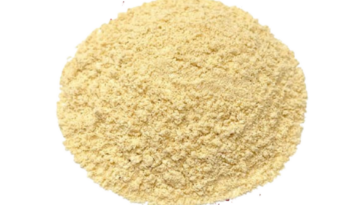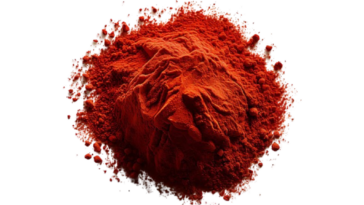Erythritol is a sugar alcohol that has gained popularity as a sweetener in recent years, particularly in the realm of low-calorie and sugar-free products. Here’s an expansion and explanation of the statement provided:
Erythritol is a type of sugar alcohol, also known as a polyol, which is a type of carbohydrate. Chemically, it is a four-carbon sugar alcohol (polyol), and its structure closely resembles that of other sugar alcohols like xylitol and sorbitol.
While erythritol is found naturally in some fruits and fermented foods (like wine, beer, and soy sauce), commercial production of erythritol typically involves the fermentation of glucose derived from corn starch. This fermentation process is carried out by yeast, which converts the glucose into erythritol. The resulting erythritol is then purified to obtain a high-quality sweetener.
Although erythritol has been known for some time, its use as a food ingredient has gained significant traction in more recent years, particularly as consumers become more health-conscious and seek alternatives to traditional sugars and artificial sweeteners. Its relatively recent rise in popularity is partly due to its unique properties and benefits compared to other sweeteners.
Erythritol provides sweetness without the calories and blood sugar spikes associated with regular sugar, making it a suitable option for individuals managing diabetes or those looking to reduce their calorie intake. Additionally, erythritol is tooth-friendly and does not contribute to tooth decay, unlike some other sweeteners. It also has a negligible effect on blood glucose and insulin levels, making it suitable for low-carb and ketogenic diets.
Erythritol is commonly used as a sweetening agent in various food and beverage products, including sugar-free gum, candies, baked goods, beverages, and dairy products. It is often combined with other sweeteners like stevia or monk fruit extract to enhance sweetness and improve flavor profiles.
Erythritol is generally recognized as safe (GRAS) by regulatory agencies such as the U.S. Food and Drug Administration (FDA) and the European Food Safety Authority (EFSA) when consumed in moderate amounts. However, excessive consumption may lead to digestive issues such as bloating and diarrhea in some individuals, particularly when consumed in large quantities.
Vitamins & Minerals:
Erythritol is a sugar alcohol, and while it can be a helpful sugar substitute for people with diabetes or those looking to cut calories, it doesn’t contain any of the essential nutrients our bodies need.
Probiotic, Prebiotic, or Postbiotic:
Erythritol is neither a probiotic, prebiotic, nor postbiotic. Instead, it is a sugar alcohol commonly used as a sugar substitute due to its low calorie content and minimal impact on blood sugar levels. Probiotics are live microorganisms that confer health benefits when consumed, prebiotics are non-digestible fibers that promote the growth of beneficial bacteria in the gut, and postbiotics are metabolic byproducts of probiotics that also offer health benefits.
Dietary & Health Information:
Erythritol provides sweetness without the calories and blood sugar spikes associated with regular sugar, making it a suitable option for individuals managing diabetes or those looking to reduce their calorie intake. Additionally, erythritol is tooth-friendly and does not contribute to tooth decay, unlike some other sweeteners. It also has a negligible effect on blood glucose and insulin levels, making it suitable for low-carb and ketogenic diets.
Low-Calorie Sweetener: Erythritol is a sugar alcohol that provides sweetness to foods and beverages without adding significant calories. Compared to regular sugar, which has about 4 calories per gram, erythritol has close to zero calories per gram. This makes it an attractive option for those looking to reduce their calorie intake while still enjoying sweet treats.
Blood Sugar and Insulin Levels: Unlike sugar, which can cause rapid spikes in blood sugar and insulin levels, erythritol does not significantly affect blood glucose or insulin levels. This makes it a suitable sweetener for individuals with diabetes or those looking to manage their blood sugar levels.
Antioxidant Properties: Some research suggests that erythritol may possess antioxidant properties, which can help protect cells from damage caused by free radicals. Antioxidants play a key role in reducing the risk of chronic diseases and promoting overall health.
Tooth Decay: Erythritol is tooth-friendly and does not contribute to tooth decay. Bacteria in the mouth cannot ferment erythritol, unlike sugar, which can lead to the production of acids that erode tooth enamel and cause cavities. This makes erythritol a preferred sweetener for oral health.
Weight Management: Because erythritol is low in calories and does not affect blood sugar levels, it can aid in weight management by reducing calorie intake. By substituting erythritol for sugar in recipes or choosing foods sweetened with erythritol, individuals can enjoy sweet flavors without the added calories that can contribute to weight gain.
Erythritol is commonly used as a sweetening agent in various food and beverage products, including sugar-free gum, candies, baked goods, beverages, and dairy products. It is often combined with other sweeteners like stevia or monk fruit extract to enhance sweetness and improve flavor profiles. Erythritol’s versatility and ability to provide sweetness without added calories or negative effects on blood sugar levels make it a popular choice for manufacturers looking to create healthier alternatives to sugar-sweetened products.




 No products in the cart.
No products in the cart.